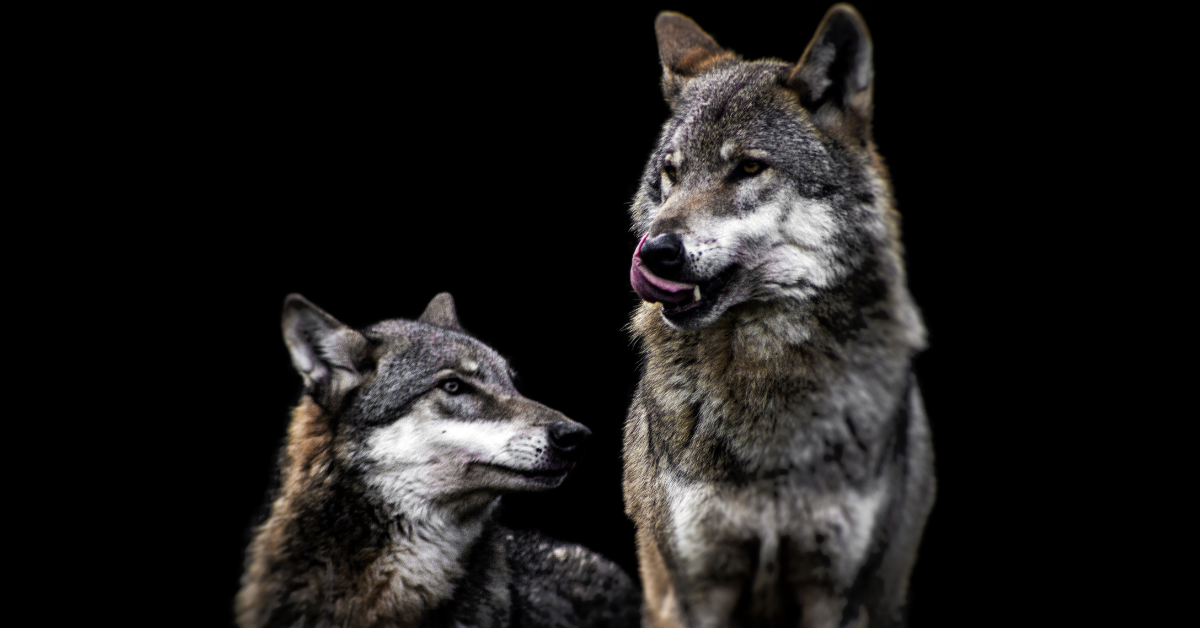How convenient for Colorado Parks and Wildlife that an adult male wolf, a member of the state’s first family of wolves to form under its reintroduction program launched December 2023, died in captivity during a relocation effort.
That wolf had been accused of being involved in repeated attacks on cows called “livestock,” and officials are now saying that wolf would have been kept in captivity if it had survived.
What? That’s news to Friends of Animals. A valid reintroduction program shouldn’t take 10 wolves from the wild in Oregon to have some of them end up in a zoo or imprisoned elsewhere to placate cattle and sheep ranchers. Especially because they are not required to protect their livestock by fencing land on which the animals graze.
A decision is pending on where the remainder of the family, an alpha female and four pups, will be released. That will occur after the pups get larger and can hunt on their own, officials said.
Wildlife officials announced on Aug. 28 that they were relocating the Copper Creek wolf group, the mating pair and pups born this spring, instead of trapping and shooting them after a series of livestock depredations. Friends of Animals was relieved they’d see another day as opposed to wolves in other states who are trapped and shot because of the state agency’s relationship with area ranchers.
Now, we are left with more questions than answers.
Clearly, FoA was right to be critical of Colorado’s reintroduction plan because of how it coddles the meat industry’s ranchers. From the beginning the reintroduction plan encouraged needless killing of wolves if livestock owners caught them in the act of predation even though they already receive full market value for lost livestock and are not required to protect their animals with fencing.
We didn’t want wolves brought back just to be persecuted by the same bloodthirsty special-interest groups—ranchers and hunters—that pushed them to extinction in Colorado once before.
Wolves do not represent a serious threat to livestock. Period.
Norm Bishop, a former park ranger at Yellowstone National Park, cites a study conducted 20 years after wolves were reintroduced to Yellowstone. In counties bordering the park that had both cattle and wolves, the loss represented 0.01% of cattle, or approximately one out of every 10,000 cows.
The truth is nothing is being done to keep wolves from preying on livestock, such as using electric fencing, that can better deter conflict. CPW should adopt rules requiring that livestock attack avoidance techniques be exhausted before any wolves can be relocated again.
The problem is it pays for the industry not to use electric fencing so ranchers raising doomed cattle and sheep can continue to complain about wolves.
Under Colorado’s final wolf management plan, ranchers will be compensated for vet bills to treat injured animals, including herding dogs, with up to $15,000 for animal deaths. Introduced with bipartisan support, Senate Bill 255 last year created the Wolf Depredation Compensation Fund and appropriated $525,000 over the next two years to cover livestock losses.
The meat industry’s greed is setting the wolf reintroduction program back and costing wolves their lives. Coloradoans should be outraged since they voted to give wolves the welcome home they deserve. Not this.
In answer to the age-old question about how many wolves humans should tolerate anywhere, wolf scientist Gordon Haber advised, “The optimum number of wolves is best reached and maintained by the wolves and prey themselves. Claims that wolves destroy the very food source upon which they depend are absurd…there is no reason for us to think we must control a wolf population.”
We couldn’t agree more. It’s an oxymoron to “control” a wolf population. The whole point of the reintroduction program is to preserve wildness, to protect wolves’ lives, interests and communities.
What we can and should control is whether or not to support the meat industry through our dietary habits.
Veganism, and preserving public lands for wildlife, is the best way to reduce any so-called “conflicts” with wolves.
Otherwise, the wretched meat and dairy industries continue and indigenous wildlife pays the price.

